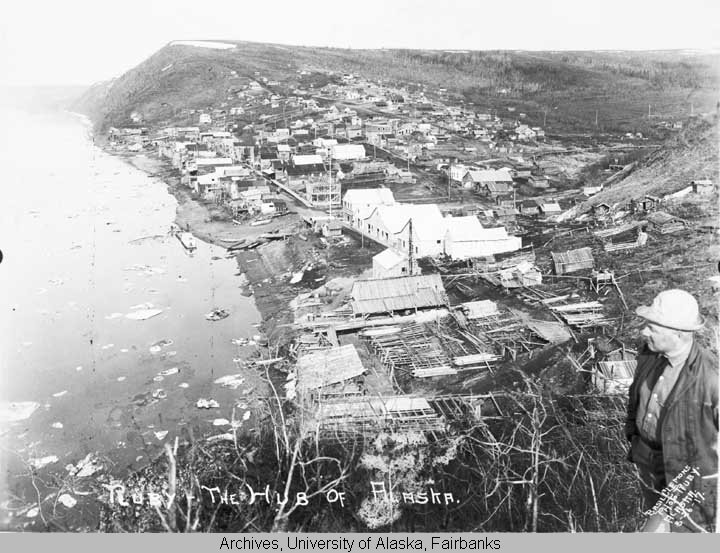This is a quick response to a comment on my There Has Been Blood post about the oil companies and their shiny new Iraq contracts. The best layout of these topics is actually in my
Memorial Day post from last year. It's worth it to me to make the arguments again, though. The ties are too tight, the cost--in blood and money--too high.
I'm not trying to "call-out" my commenter. He's a reasonable, thoughtful guy. But it's worth looking a little more closely at the way this war has played out, and it's worth continuing to do it because history won't be kind if we fail to learn from it. In a country where people truly believe that a major party candidate is a
possibly gay African-born closet-islamist who doesn't recite the pledge to the flag (more later), revisiting the facts is critical. As one of those benighted citizens said, "He's a good speaker, but you've got to dig deeper than that for the truth. Politicians tell you anything. You have look beyond the surface, and then there are some real lies."
Yup.
Now, I don't claim to know how much influence the oil industry has inside the White House. But I think we're foolish if we think it's negligible. Here's part of the comment that spurred this response:
If Iraq didn't sit on a huge bed of oil, we probably wouldn't have invaded when we did. I do have a hard time saying this is a war for oil. I've been more inclined to believe we went there because we thought he had WMD, President Bush & Co. thought we could bring "peace and stability" to the middle east, and Iraq sits on a big bed of oil. The western oil companies will get their oil and make a nice profit, but the Iraqi government will make a tidy sum as well.
I agree with a lot of this. But the WMD thing was a charade. It was made up. And I'll go along with "peace and stability" (incidentally, not a success), as long as by that you mean "democracy will flow like a river and all we have to do to make that happen is kill the right people." Which by itself is pretty incredibly naive on their part.
Almost every last person involved in the administration who is not currently in the administration has admitted that the Pres, V-P, then-SecDef Rummy and Wolfie conspired to cook the intelligence to make the case for war. This goes for every jettisoned principal from George Tenet to latest traitor Scotty McClellan. Almost every shred of evidence--including the "mobile weapons labs" that were part of the slideshow C.Powell gave at the UN--were ginned up from single-source informants with an ax to grind, and in one case, an
international reputation as a con-man. The only people not admitting to this are still gainfully employed by the White House.
I haven't written a comprehensively sourced blog on this since a year ago because, frankly, it depresses the shit out of me.
The "peace and stability" canard is a true beauty of selective sociology combined with a religious (small "r") -- not factual -- view of democracy and how successful democratic institutions coalesce from human populations. The idea itself is not the crystallizing agent the neoconservatives wish that it was. For more reading on how they began to convince themselves of these theoretical underpinnings for the policy of "oil-forward" and "aggressive democracy" dig into information about "The Project for a New American Century," or PNAC.
Led by "liberal" New York Times, no newspapers or reporting agencies asked hard questions (or even follow-up questions to their own softballs) during the run-up to the invasion. Reporter Judith Miller beat the war drum most loudly. It was later revealed that her only significant source was Ahmad Chalabi and that she didn't do any fact-checking. (She was later compelled to quit her job, but not before covering for I. Scooter Libby.)
There was, and is, a lot of complicity on both sides of the aisle to either use public fear to get what they wanted (Patriot Act, AUMF) or to stay out of the way of the zeitgeist lest they be voted out of office or *gasp* labeled un-American or traitorous (see, John Kerry, Hillary Clinton, e.g.). Of course, they were too naive to understand that they'd get that label anyway, as Democrats.
The use of fear continues. The recent "compromise" on the FISA legislation is a response to that fear--again either a willingness to exploit it or an unwillingness to stand up to it and make a principled case. Now FISA (which worked just fine, by the way) has been greatly expanded and the only assurance that the government
won't spy on you is their say-so. And the telecommunications companies that broke 4th Amendment law in order to help the government spy on you are no longer subject to accountability.
Commenter:
Don't cry for Lukoil and Putin. Their role in helping Hussein circumvent food-for-oil is criminal. It's too bad most of the world has ignored it.
I cry for no oil companies--those run by Russian oligarchs least of all (we have plenty of our own, anyway). But they had plenty of help in subverting oil-for-food. According to the CIA, the list includes Chevron and ExxonMobil to name two off the top of my head. Chevron alone admitted to paying over 30million in kickbacks (while Condi Rice was on its board of directors, no less). It's too bad that we in the west have ignored
that. I pointed out that the Russians lost out on the contract to indicate that the pay-to-drill arrangement involved the deaths of US Soldiers, not Russian ones, and the regime in Iraq understands that.
In a war of straight policy, the first preemptive war fought by the US since before WWI, reasons are paramount. Like Ellerby, Alec Baldwin's character in "The Departed," it makes sense to ask "Cui bono? Who benefits?"
In the case of the Iraq invasion, the press and congress and many Americans' response was Matt Damon's: "Cui gives a shit? It's got a fucking bow on it!"
But who has benefited? Certainly not our over-deployed and under-supplied military. Certainly not our economy, strapped with the largest deficit in its history (both as a raw number and as a percentage of GDP) as a result of a war habit that costs
$430 million per day [CNNMoney 6/12/08]. According to the President and Congress, we aren't any more secure--that was their main argument for renewing the Patriot Act and the new FISA "compromise."
According to the AP, on the other hand:
Chevron Corp. put yet another exclamation point on the oil patch's long run of prosperity Friday with a first-quarter profit of $5.17 billion, or $2.48 per share. That was up 10 percent from net income of $4.72 billion, or $2.18 per share, last year.
The performance exceeded the lofty expectations of analysts, helping lift Chevron shares 38 cents to $95.32.
It was the second-highest quarterly profit in the company's 129-year history and marked the most money that it has ever made during the January-March period. That puts the No. 2 U.S. oil company on track for its fifth straight year of record earnings. AP report, 5/2/08.
The same goes for their buddies around the world. These companies have benefited from an energy policy -- literally a secret energy policy -- formulated by Dick Cheney and their own board members behind closed doors. I'm not trying to be hyperbolic--you can't make this shit up. He literally met in secret with oil industry executives to lay out our energy policy in 2001. When newspapers and interest groups sued to see non-classified documentation of the meetings to understand how our official oil use and development policy was crafted, the case was thrown out of court.
Now we're occupying the largest untapped oil reserves in the world with American soldiers (pretty successfully) policing a religious civil war that we set loose. About the only people set to gain from this situation are American oil companies: I ask again, "Cui bono?"
So, it may not have been the only reason. But it was a big one. And when it comes time for these guys to count their chips when they pack up the boxes next year, it will be the most important one, and the only one that succeeded.
The answer may have a bow on it, but if you're a taxpayer, the box itself is full of a big shit sandwich. Nom nom nom ... tastes great! Thanks, George!



























